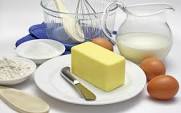
Last week I looked at the impact on the heart of acute and chronic stress, and some strategies to combat the effects including a link to my breathing exercises.: Heart and Stress Connection

This week I am looking at how including certain nutrients in your diet can support the body and the brain during stressful events.
A healthy diet is absolutely necessary whatever lifestyle we have but if we are under excessive levels of stress then it becomes critical.
Make sure that you are hydrated. Dehydration is a leading physical cause of stress and you need at least 2 litres of fresh, pure water per day and more if you are on holiday or living in very hot climates. I recently posted about dehydration as a cause for food cravings and you can check that out HERE

Seven good reasons to drink water
- Your body consists of between 60% and 75% water.
- Each day our body loses 2 litres of fluid through urination,
Breathing and through our skin. - We require even more fluids in warm climates or if we have a higher activity level.
- Not drinking enough fluids puts a great deal of stress on the body. Kidney function particularly will be affected and there is a danger of kidney and gallstones forming. Immune function is impaired leaving us more prone to infection.
- Lack of water causes a number of problems that we tend to shrug off. Headaches, irritability (especially first thing in the morning and in children) aching legs, water retention, poor skin tone, circles under the eyes, dull and lifeless hair, lack of energy and poor emulsification of fats.
- Drinking water helps prevent water retention. Your body knows that it will die very rapidly without fluids so it tends to keep as much as it can in reserve.
- If you are taking regular medication basis you need to make sure that you flush your system daily to ensure that there is no build- up of toxins in your cells, kidneys and liver.

There are some vitamins and minerals which the body needs to handle stress especially as during a stress interval the body will use up additional reserves of many nutrients. Lots of fresh fruit and vegetables are necessary and here are a few of the particular nutrients that will help you handle the stress in your life.
Vitamin A mops up the toxic residue of elevated stress hormone levels. (Liver, fish oils, butter, cheese, Free range eggs, oily fish and Beta-carotene that converts to Vitamin A from carrots, green leafy vegetables such as asparagus and broccoli, orange and red coloured vegetables such as apricots)
Vitamin B1 improves your mood and is vital for nerve function. (Whole grains, seeds, peas, beans and nuts.)
Vitamin B3 helps you regulate your sleep patterns. (Liver, brewer’s yeast, chicken, turkey, fish, meat, peanuts, whole-grains, eggs and milk.)
Vitamin B5, better known as Pantothenic Acid, controls the action of the adrenal glands, which play a vital part in the stress response. (Liver, yeast, salmon, dairy, eggs, grains, meat and vegetables.)
Vitamin B6 is essential for the manufacture of the brain chemical serotonin, which is also called the feel good chemical. (Potatoes, bananas, cereals, lentils, liver, turkey, chicken, lamb, fish, avocados, soybeans, walnuts and oats.)
Vitamin B12 is necessary to help produce brain chemicals such as serotonin (dairy, eggs, meat, poultry and fish, for vegetarians in Miso and Tempeh both fermented soybean products)
Vitamin C is one of those vitamins that is used up very quickly during a stress reaction and needs to be replaced immediately as a deficiency leads to increased levels of anxiety and irritability. Smokers should take in Vitamin C in their diet and under the supervision of a professional should also take supplemental Vitamin C. (found in all fruit and vegetables but best sources are blackcurrants, broccoli, Brussels sprouts, cabbage, cauliflower, cherries, grapefruits, guavas, kiwi fruit, lemons, parsley, peppers, rosehips, potatoes, tomatoes and watercress.)
Minerals necessary to help the body manage stress



Calcium helps you relax and studies have certainly shown that for women it can help reduce the symptoms of stress related to their periods. (Dairy, sardines, canned salmon with the bones, green leafy vegetables such as spinach and soy products such as tofu.)



Magnesium works with calcium and also helps to reduce stress. (Whole grains, beans, seeds, wheat germ, dried apricots, dark green vegetables, soybeans and fish)



Chromium stabilises blood sugar levels that create stress. (Brewer’s yeast, onions, whole grains, shellfish, liver and molasses)
The aim of a healthy diet is to provide your body with the necessary fuel in the right proportions to enable it to achieve homeostasis, or balance. If you are living a very stressful lifestyle then you need to ensure that you address that balance as quickly as possible. If you suffer from low to moderate levels of stress you will find that by adopting relaxation techniques and giving your body the correct fuel to deal with the situation will have long lasting and very beneficial effects on you now and also years ahead in the future.
Don’t allow your stress levels today creep up on you unawares in 20 years time, deal with it today.
©Sally Cronin Just Food for Health 1998 – 2019
My nutritional background
 I am a qualified nutritional therapist with twenty years experience working with clients in Ireland and the UK as well as being a health consultant on radio in Spain. Although I write a lot of fiction, I actually wrote my first two books on health, the first one, Size Matters, a weight loss programme 20 years ago, based on my own weight loss of 154lbs. My first clinic was in Ireland, the Cronin Diet Advisory Centre and my second book, Just Food for Health was written as my client’s workbook. Since then I have written a men’s health manual, and anti-aging programme, articles for magazines and posts here on Smorgasbord.
I am a qualified nutritional therapist with twenty years experience working with clients in Ireland and the UK as well as being a health consultant on radio in Spain. Although I write a lot of fiction, I actually wrote my first two books on health, the first one, Size Matters, a weight loss programme 20 years ago, based on my own weight loss of 154lbs. My first clinic was in Ireland, the Cronin Diet Advisory Centre and my second book, Just Food for Health was written as my client’s workbook. Since then I have written a men’s health manual, and anti-aging programme, articles for magazines and posts here on Smorgasbord.

If you would like to browse by health books and fiction you can find them here: https://smorgasbordinvitation.wordpress.com/my-books-and-reviews-2019/
As always delighted to get your feedback and questions. This is not intended to take the place of your doctor’s presence in your life. But, certainly in the UK, where you are allocated ten minutes for a consultation and time is of the essence; going in with some understanding of how your body works and is currently functioning can assist in making a correct diagnosis.
Some doctors believe that a little knowledge is a dangerous thing. However, I believe that understanding our bodies, how it works, how we can help prevent health problems and knowing the language that doctors speak, makes a difference. Taking responsibility for our bodies health is the first step to staying well.
Thanks for dropping in and I hope you find useful.. Sally.

Pingback: Smorgasbord Blog Magazine Weekly Round Up – Children’s books, Crooners, Cravings and Cartoons. | Smorgasbord Blog Magazine
Great article Sally. Pxx
LikeLiked by 1 person
Thanks Paul.. nothing like a post on innards before supper… xxxx
LikeLiked by 1 person
No trouble drinking water here it topped 107 degrees yesterday so the watermill was in full swing….Great advice once again…Hugs xxx
LikeLiked by 1 person
Tough to keep sufficient on board at that heat but you are well used to it.. whereas tourists don’t tend to make the adjustments… we often had people conking out in Spain…xxx♥
LikeLiked by 1 person
I’d comment further, but I have to go get a glass of water (or two).
LikeLiked by 1 person
Good to hear haha…x
LikeLike
Thank you Sal. I always learn something new from your posts when I reread. I was happy to note that B12 can be had by eating miso – yum! ❤ xx
LikeLiked by 1 person
Thanks Debby…♥
LikeLiked by 1 person
Thanks, Sally! 🙂 Adding to my water intake… Wonderful list of vitamin and mineral sources. Saving and sharing! xo
LikeLiked by 1 person
Great thank you Bette.. it does help to spread the word wider. hugs ♥
LikeLiked by 1 person
Thank you very much for remembering, Sally! Have a nice evening! Michael
LikeLiked by 1 person
You too Michael.. hugs
LikeLike
I struggle to drink cold water during winter, Sally. I took your advice and I am drinking warm water with a few slices of orange in it. My water intake has increased dramatically.
LikeLiked by 1 person
That is fantastic Robbie. great to hear..hugsx
LikeLiked by 1 person
Important info, thanks, Sally!
LikeLiked by 1 person
Thanks Jacquie..glad you found it interesting..hugs
LikeLiked by 1 person